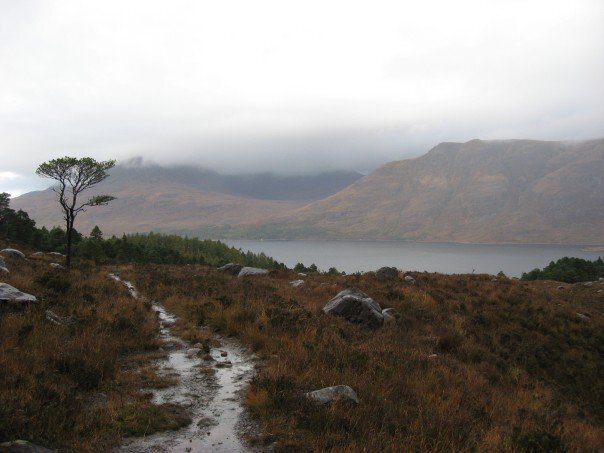The Library: Thin Places by Kerri ní Dochartaigh
/By Marcel Krueger:
According to German writer Heinrich Böll (1917-1985) and his "Irish Journal" first published in 1957, "the people of Ireland are the only people in Europe who have never invaded other countries [...]". Since the publication of his book, this view has been the mainstream view of Ireland from Germany for decades, fuelled by countless media campaigns of Fáilte Ireland , the Irish Tourism Board: a twee, harmless island of green fields, dramatic cliffs and pubs with open fires, peopled by jolly fiddlers, naive artists and buxom ginger maidens. The dark and martial history of Ireland as a whole is often swept under the glossy rug made of postcards or Instagram reels from the "Wild Atlantic Way", or only ever mentioned if it can be commodified and packaged into something visitors can consume, like swashbuckling stories of Grace O'Neill or the conflict in Northern Ireland only made accessible through guided tours of murals and "Peace Walls". The fact that Ireland did invade other countries, its soldiers employed as mercenaries by European powers for centuries, or that its people have been slaughtering each other for a hundred years with bullets and bombs, is all glossed over.
I hope that many people from Germany will read “Thin Places” by Kerri ní Dochartaigh, which in its complexity addresses the violence all over Ireland, and offers a way of understanding and a potential way out of the spiral of violence that engulfed the north of the island for so long. Coincidentally, the German feuilleton often uses the term Seelenstriptease, literally a “soul striptease”, for a work of art, a book, an interview, a movie that reveals deeply personal and intimate details about the creator of that work, or the subject. I don't really like the word, but it is the first I thought about when finishing Kerri's wonderful work, that this book is very much a soul, and a country, stripped bare.
The book is about many things: Brexit, place, trauma, alcoholism, grief, hope and fear, and uses the structure of memoir to follow the life of the writer: from her growing up as the child of a Catholic mother and a Protestant father in Derry/Londonderry, firebombed out of her home during the “Troubles”, the civil war in Northern Ireland between 1969 and 1998, and then moving away to Scotland and England before finally returning to her hometown in her 30s. Whereas the many excellent essay collection that have come out of Ireland in recent years, like Sinéad Gleeson's "Constellations" or Ian Maleney's “Minor Monuments” use personal stories as starting points to establish the theme of single essays, "Thin Places" is a book-length essay in itself, one that drifts of into certain themes but always circles back to the main structure of handling trauma - and failing in doing so.
This is not a book that is easy to read. Not because of the complexity of writing or the darkness it explores, but because it does not offer easy escapism, or just food for thought that makes you utter "Interesting!" and then put it aside. Many things that Kerri writes about in here are so profound and moving that I literally had to pause after a few paragraphs, put the book down and explore what her words had caused inside of me. Sometimes I got confused by the many places and (life) times the author jumps back and forth between, but then the key themes and the overall structure remain clear and always allow the reader to climb back in.
This island on which I was born is a wild, ancient and stirring place - a place so ethereal as to take a given moment in time and bathe it in the light of something divine, a place that was eternal and holy long before those words ever had need for voicing. [...] Ireland - this ethereal and mythical island, set down in the heart of the ravenous, tumultuous Atlantic Ocean - is black, too, coal-black, as black as to be the making of the crows. Black is the colour of many of our true loves' hairs on this island but it is also the colour of sorrow and fear - of mystery and the unknown, of so much death, and of the unimaginable depths of our grief.
The book ends on a note of hope, with the image of the winter solstice and the conviction that there is always light ahead when it is darkest, but I don't think that that is necessary. Looking at the pictures coming from Northern Ireland in April 2021, it is clear that the important thing here is balance, balance in the peace process and the self. There are only ever small victories possible for all of us, and we have to fight every day so that the needle does not tilt back to the dark side again. “Thin Places” is a deeply personal work of art and at the same time a timely portrait of the (still) hurting island of Ireland that everyone should read. Especially in Germany.
***
Thin Places is published by Cannongate.
Marcel Krueger is the Books Editor of Elsewhere: A Journal of Place. His writing has been published in numerous places both online and in print, and he is the author of Babushka’s Journey: The Dark Road to Stalin’s Wartime Camps (I.B. Taurus, 2017) and Iceland: A Literary Guide for Travellers (I.B. Taurus, 2020). You’ll find him on twitter here.











